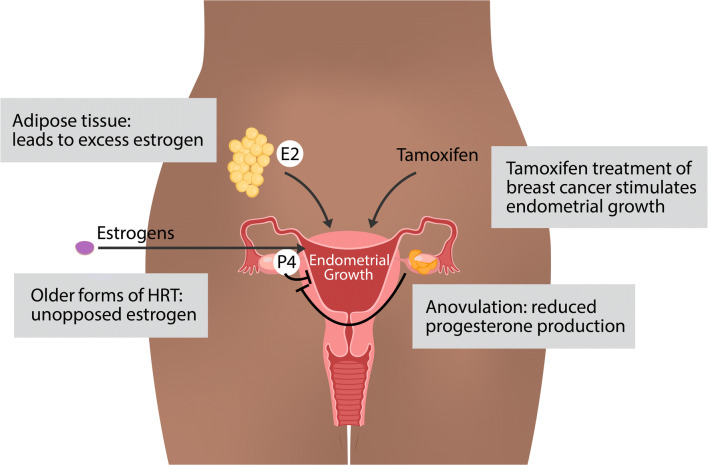Fig. 1.
Risk factors for endometrial cancer. In general, estrogens, including 17β-estradiol (E2), drive endometrial growth and progestogens, including progesterone (P4), block endometrial growth and promote differentiation. Excess estrogens can be caused by obesity, where adipose tissue can synthesize estrogens, estrogen only hormone replacement therapy (HRT), and breast cancer treatment with tamoxifen, which acts as a partial ER agonist in endometrial cells. Loss of progesterone, which can occur due to anovulation, can also contribute to endometrial growth

